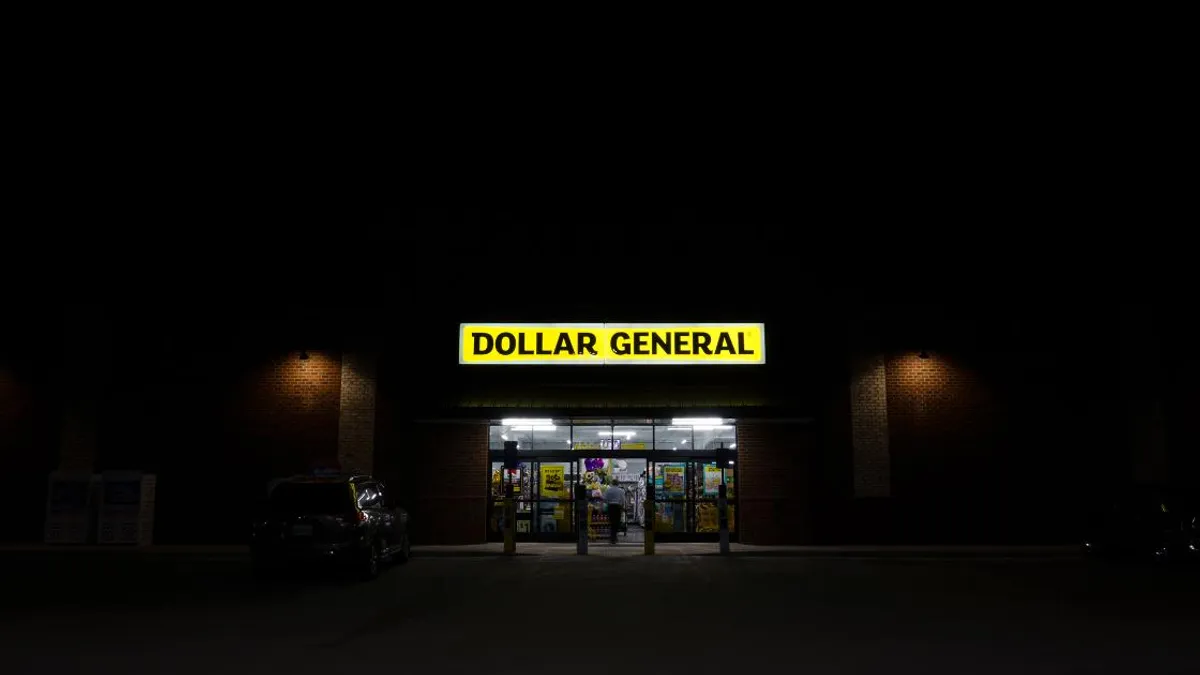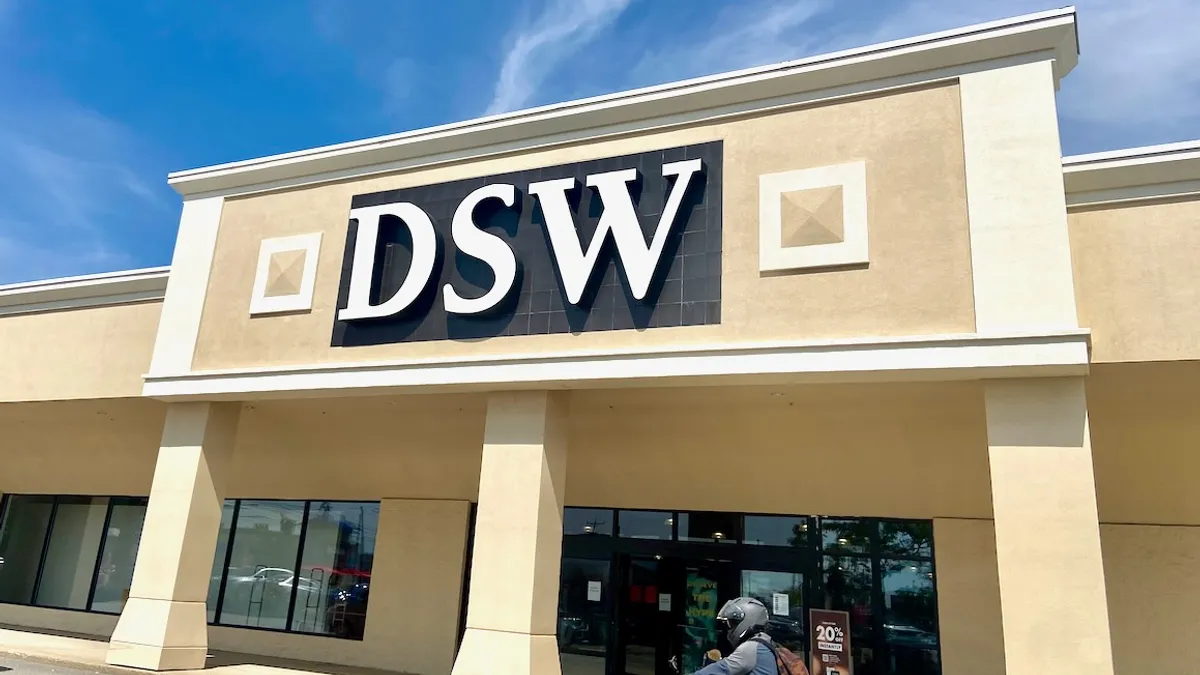News releases from the Occupational Safety and Health Administration can have a cut-and-paste feel. In many recent releases from the past year, the federal regulatory agency consistently repeats some of the same phrases: willful violations, repeat violations, fire hazards, safety failures.
There’s something else in common. It’s one specific retailer the regulators are focused on.
OSHA has recently intensified its focus on discount retailer Dollar General. The regulatory agency has repeatedly cited the company for allowing the same types of safety violations to persist in its stores for more than half a decade.
The problem has become so pervasive that OSHA announced in October that it added Dollar General to its Severe Violator Enforcement Program. Employers in the program “have demonstrated indifference” to OSHA policies or regulators by committing willful or repeated violations.
Inspectors have repeatedly cited the discount retailer, which has more than 19,000 stores and 175,000 employees, for similar violations at locations across the county.
The violations are typically related to backroom storage and merchandise clutter that block aisles, emergency exits, fire extinguishers and electrical panels.
Regulators have also cited the company for stacking boxes or merchandise high and haphazardly, which could result in employees or customers being injured by falling items. At first glance, backroom clutter or a blocked door might not sound serious. But OSHA Regional Administrator Eric Harbin in Dallas tried to put that situation in context.
“Seconds lost trying to move boxes to reach a fire extinguisher or get out a safety exit can be the difference between life and death in an emergency," Harbin said in an April 13 announcement about another round of citations against the discount retailer. “Allowing unsafe conditions like these to exist is a tragedy waiting to happen.”
All structures face fire risks and Dollar General stores are no exception.
According to local media reports, a September 2021 fire at a store in Ocala, Florida, caused the business to become “engulfed in flames.” In 2022, a fire broke out at a store in Farmington, New York (that incident was later classified as an arson). And this year so far, fires have damaged stores in Newport News, Virginia, Shenandoah, Pennsylvania and Beech Island, South Carolina.
Although none of the reports Retail Dive found involved fatalities, the incidents appear to validate the concerns of OSHA and some local officials, who have ordered shutdowns of Dollar General stores in North Carolina due to fire safety code violations.
OSHA said in a June 2 announcement that Tennessee-based Dollar General faces more than $21 million in penalties assessed since 2017. But in response to an inquiry from Retail Dive last month, an OSHA spokesperson said Dollar General has paid just $4 million. Comparatively, on June 1, the company reported its Q1 sales rose nearly 7% to $9.3 billion, up from $8.8 billion the year prior.
OSHA can take additional enforcement actions if fines go unpaid, according to Lee Marchessault, president of Workplace Safety Solutions, a Vermont-based consulting firm. Marchessault told Retail Dive in emailed comments that OSHA can file criminal charges if a business refuses to pay fines.
Dollar General did not respond to Retail Dive’s request seeking comment for this story.
But in a statement provided to Retail Dive in April, and to other publications on subsequent safety citations, Dollar General said in part, “We regularly review and refine our safety programs, and reinforce them through training, ongoing communication, recognition and accountability. When we learn of situations where we have failed to live up to this commitment, we work to timely address the issue and ensure that the company’s expectations regarding safety are clearly communicated, understood and implemented.”
Susan Wiltsie, a partner at Hunton Andrews Kurth in Washington, D.C., who focuses on labor, employment and OSHA compliance issues, says ignoring the fines could have financial impacts as well.
“The financial risk is connected to the possibility of high OSHA fines, the cost of employee turnover, and the risk that a reputation for lax safety could impact consumer demand and investor enthusiasm,” Wiltsie said in emailed comments, adding that her comments represented her take on retail-related safety in general and were not specific to Dollar General.
Retail safety matters to investors, customers
While the company has not specifically disclosed to the public what it’s doing to address safety issues, Dollar General shareholders on May 31 voted to create an independent audit into worker safety. Frontline workers and labor advocates describe the decision as a victory and a step toward accountability for one of America’s largest retailers.
“Dollar General has a responsibility to provide a safe working environment for its employees, and it now has clear support from its shareholders to do this,” Mary Beth Gallagher, director of engagement at Domini Impact Investments, said in a statement after the vote. Domini is a Dollar General shareholder.
Just days after that vote, OSHA cited Dollar General again, sister publication HR Dive reported.
“We hope the company will act quickly to conduct an independent audit, incorporating worker and customer input, so root causes can be identified, and the process can begin to make system-wide improvements to the safety at its stores so that workers no longer have to worry if they will come home from work safely,” Gallagher said.
Retail Dive asked Dollar General in June if the company plans to move forward with the audit and if it had a response to the safety concerns raised at the shareholders meeting. In response, the company said: “According to the preliminary report of the Inspector of Election, a proposal regarding an independent third-party audit was approved. We are awaiting the final report and will report the final results in a Form 8-K within the required period.”
Environmental, social and governance issues do matter to customers, said Wiltsie, who also noted that retailers expose their business to multiple risks by allowing safety issues to persist.
"The most important consequence of safety non-compliance is the risk to the health and safety of the employees."

Susan Wiltsie
Partner at Hunton Andrews Kurth
“Corporate citizenship is increasingly tied to consumer demand and investor enthusiasm,” Wiltsie said. “We have all seen brands harmed by public attacks based on actual or perceived failures by the company to ‘do the right thing,’ which includes legal compliance.”
“Some customers will consider such issues when making purchasing decisions,” Wiltsie continued. “Some investors will consider these reputational issues too. Even if they do not, investors care about the cost of non-compliance. Non-compliance costs include fines, employee turnover, and lessened consumer demand.”
Retailers face reputational and financial risks by not addressing safety issues.
“The most important consequence of safety non-compliance is the risk to the health and safety of the employees,” Wiltsie said. “Retail is not typically considered a high-risk industry, so the number of serious hazards are limited; but, still present.”
Marchessault agreed and noted that there’s more than money at stake. “A more important consequence for non-compliance is an increased risk of injuries or death to employees. For example, it’s extremely important to keep exit routes clear of obstructions. In emergency situations, this concept saves lives.”
Unfortunately, Marchessault noted, some companies may see OSHA violations as just another cost of doing business. Those companies may not realize that good safety programs can have a positive impact on the bottom line.
In the meantime, a resolution for Dollar General’s outstanding OSHA penalties could be on the horizon. The New York Times reported in March that OSHA and Dollar General were in settlement talks. Wiltsie said it’s “very common” for companies to settle a large slate of violations and agree to an improvement plan.
“This creates an ideal opportunity for resolution,” Wiltsie said. “It makes good business sense to try to settle instead of spending legal fees for a litigated outcome that is unlikely to be a full victory.”























